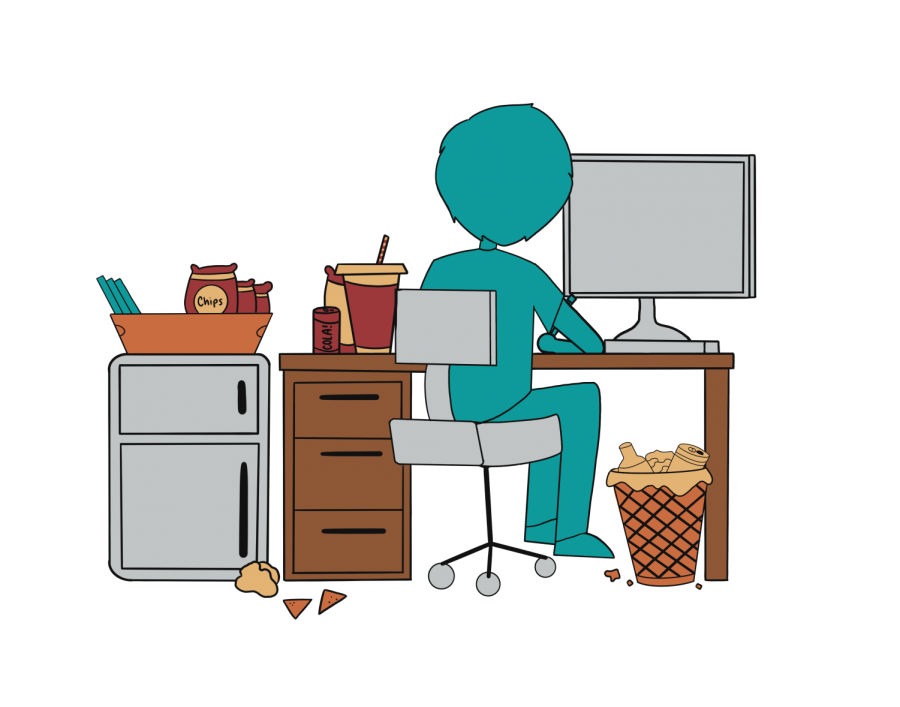Students’ diets go downhill
October 16, 2020
Four walls, a bed and a desk. These are the sights students on campus have grown accustomed to. Their dorm rooms, where the majority of their day is spent, serve as sleeping quarters, a dining room and an entertainment venue.
There are few other places students are able to go, with most dorm rooms equipped with only a mini-fridge and microwave. Additional fridges are not to be brought according to the official CWU website, so there isn’t much room for items that require cold. As a result, many students’ health habits have had to be adjusted, dietary needs notwithstanding.
James P., a senior education major, finds himself eating late in the day. With midnight food runs making up his dinners, P. said he feels worried about the added weight gain from eating right before bedtime.
“I believe these late meals are especially detrimental because the extra belly never did anyone’s self-esteem a favor and I’m no exception,” P. said.
Throughout his day he eats approximately one to two meals if snacks are included. At the time of 5 p.m. he hadn’t yet eaten for the day. He said he didn’t have enough motivation to go to the SURC due to its distance from his residence.
“Even when I manage to get a meal in for the day, it is frequently a handful of the spicy Cajun nuts at the C-Store in my pajamas,” P. said, adding on that even when he had motivation he was “busy as all get out with homework, and junk.”
Megan Anderson, a sophomore accounting major and former housing employee, held the sentiment that her health habits in general have seen a decline, especially her diet. She said she is eating less frequently and that others in her social circles have also developed poor habits with how often they eat.
“I don’t know why, but the vending machines are practically empty in dorms,” Anderson said.
Anderson said in Moore Hall, the vending machines are running low on supplies. With the altered sleep schedules of many residents, should they need to eat after the SURC closes, there are no locations on campus to provide food. With students such as Anderson waking up for the day at 2 p.m., this means that oftentimes dinner is fast food.
“It’s not like I want to eat fast food for dinner but if I have to use real person money, I want to get my food fast so I can go home,” Anderson said.
A junior public relations major who wishes to remain anonymous said while CWU is doing what it can for students, the issue is with the students’ mental health. While he used to go to the gym, he’s lost motivation ever since his diet has become more saturated in junk food.
“I ate Top Ramen for breakfast because I don’t have the fridge space for anything I’d actually like to cook. Even if I did, I don’t trust dorm kitchens,” the student said.
Motivation to improve diet wasn’t his primary concern, with school and work having to be balanced.
“I’m not saying that being healthy isn’t important, but I’d rather focus on making it through the day however I can manage,” the student said.



